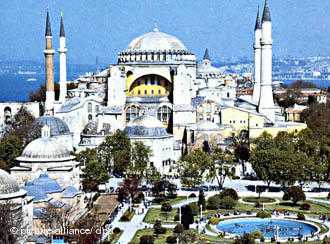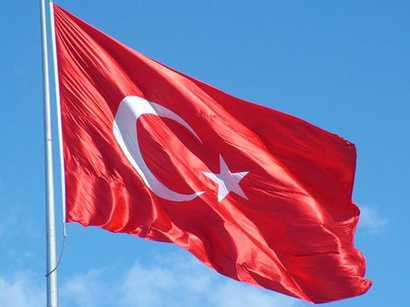|
|
|||||
|
MOSCOW. (Fyodor Lukyanov for RIA Novosti) – The Georgian-Russian conflict has dramatically changed the position of the self-proclaimed republics of Abkhazia and South Ossetia. The idea of recognizing their independence has been put to the vote in Moscow.
By trying to use military force to restore the country’s territorial integrity, Tbilisi has killed the last hope of a political settlement to the conflict. The return of the breakaway republics to Georgian sovereignty, unlikely before Mikheil Saakashvili’s ill-advised adventure, is now completely impossible.
But this does not mean the future is predetermined. There are two precedents that developments may follow: that of Kosovo or that of Cyprus. Russia must be very careful when choosing between them.
The Kosovo scenario seems to promise more lasting results. Judging by the sixth paragraph on the Medvedev-Sarkozy plan, or at least its Moscow version, which provides for international discussion of the status of Abkhazia and South Ossetia, the Kremlin would prefer the Kosovo scenario.
But it can only be implemented if the UN Security Council approves a relevant resolution, similar to Resolution 1244 adopted in June 1999 after the end of NATO’s air raids on Yugoslavia.
The international community already knew then that Kosovo, which had refused to bow to the central authorities long before the Yugoslav army pulled out, would never accept the sovereignty of Belgrade. However, it was impossible to announce this publicly, as this could have provoked unpredictable developments in Serbia and would amount to the crude dismemberment of a sovereign state.
The issue was put on hold, and at Moscow’s insistence a clause was added to the resolution affirming the territorial integrity of Yugoslavia.
This did not save Belgrade, but Russia and Serbia doggedly quoted that clause when contesting Kosovo’s unilateral proclamation of independence and its recognition by several Western countries.
The Russian leaders only state the facts when they say that Saakashvili has dealt a deadly blow to Georgia’s territorial integrity. Yet the Security Council cannot approve a document that does not affirm it. Not only the West, bent on supporting Tbilisi, but also most other countries, would oppose it.
It is one thing when some states act illegally, as when Kosovo’s independence was legalized. But it is quite another matter when the international community approves a resolution sanctioning the dissolution of a sovereign state. No country, including those that will never experience such problems, could approve it.
On the other hand, Moscow will find it extremely difficult for domestic reasons to tolerate any mention of Georgia’s territorial integrity in a UN resolution. It has made quite a few public statements and pledged to pay for the restoration of South Ossetia. Besides, it will be impossible to explain to the public why a military victory has not translated into a political win.
It will take refined diplomatic skills to formulate ideas in such a way that all sides can interpret them as victory. Otherwise, the danger is that developments in Georgia will follow the Cyprus scenario. Russia would unilaterally recognize the independence of Abkhazia and South Ossetia according to the formula that has linked Turkey and the Turkish Republic of Northern Cyprus, which only Turkey has recognized, since 1974.
This would create new problems without solving old ones.
If Russia opts for that scenario, the position of the breakaway republics will not change in terms of international law, even though many countries have lately been violating it. It should be said, for justice’s sake, that Moscow is not among the leaders in this ignoble race.
The practical situation will not improve either. The United States encouraged a score of influential countries to recognize Kosovo’s independence, but Russia is unlikely to convince even one country to follow its example. International support for Russia’s actions, or rather lack thereof, became apparent during its clash with Georgia.
Unilateral recognition of their independence will not help Abkhazia or South Ossetia to break out of international isolation, but will put powerful pressure on Russia. Moscow could not be blamed for its stance on Kosovo because it acted strictly according to international law, while Western countries appealed to expediency. The situation can be reversed this time, with Russia’s actions losing consistency and integrity.
It would be extremely difficult to follow the Kosovo scenario even if the Security Council approved a resolution on Abkhazia and South Ossetia. Their new status can be formalized only if the process becomes international, whereas Moscow and the two breakaway republics would like to decide the matter without international involvement. Unfortunately, they cannot do so, because Russia lacks the political resource.
The issue of Abkhazia and South Ossetia’s status will take some time to decide. It took nine years for Kosovo to gain independence, and even then only part of the international community recognized it. Northern Cyprus has been demanding independence for nearly 34 years.
Hasty moves motivated by a desire to score political points at home or demonstrate Russia’s ability to disregard the opinions of others would seriously damage the Kremlin’s prestige. But hard daily political and diplomatic efforts will eventually bring about the desired effect.
Fyodor Lukyanov is editor-in-chief of the Moscow-based magazine Russia in Global Affairs.






